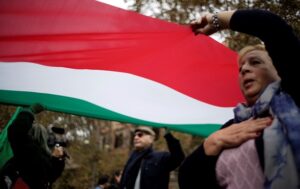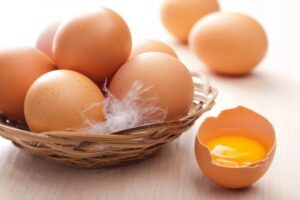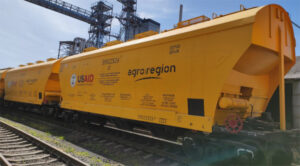
On Friday, Italian citizens went on a general strike demanding higher wages and increased investment in the social sphere, ANSA reports. Employees of the public and private sectors intend to strike for eight hours.
In the transportation sector, by order of Italian Minister of Infrastructure Matteo Salvini, the strike will be limited to four hours. Thus, water transport, buses, subways and trams will stop working from 09:00 to 13:00 local time (10:00 to 14:00 Kyiv time). Air traffic will be suspended from 10:00 to 14:00 local time (11:00 to 15:00 Kyiv time). Firefighters will also not work during this time period.
However, the strike will not affect rail services. A total of 43 protests are planned throughout Italy on Friday. The day before, the Italian Labor Union and the General Italian Labor Confederation called on citizens to go on strike to demand higher wages, increased funding for healthcare, education, public services, and investment in industry.
According to various estimates, there are about 1 million Ukrainian citizens in Italy.
In the very heart of Kyiv, on the picturesque Dnipro embankment, Veranda na Dnipre restaurant continues to invite guests and celebrity ambassadors. The new promotional video, which features Olympic champion Olga Harlan, is a vivid confirmation of the restaurant’s unique concept.
In the video, the restaurant’s brand chef Sergey Bashinsky demonstrates the exquisite skill of cooking lobster. The video culminates in the moment when Olga Harlan, with her trademark grace and determination, cuts the lobster with a sword. This vivid image symbolizes the perfect combination of culinary and sports professionalism.
“It was a unique experience to combine my sportsmanship with the art of cooking. I am very pleased to be a part of this story, which so successfully emphasizes the values of health and excellence that underlie Veranda na Dnipro. Here, every moment is a holiday,” comments Olga Harlan.
Collaboration with the Olympic champion was an important step for the restaurant in creating a new aesthetic. Olga, who symbolizes not only strength but also elegance, perfectly complements the atmosphere of the restaurant, where luxury and a sense of celebration reign.
“We are proud to work together with such an outstanding personality as Olga Harlan. Her sporting achievements, patriotism and love for haute cuisine perfectly resonate with our vision of the restaurant as a place where special moments are born,” says brand chef Sergey Bashinsky.
Veranda na Dnepre is known for its rich menu, which includes dishes from 12 cuisines. Organic products cooked with love for details, signature drinks and desserts, as well as the largest wine list in Ukraine create a real gastronomic pleasure.
Every detail in the restaurant is carefully thought out to give guests comfort, coziness and perfect service. From business meetings to romantic evenings, Veranda na Dnipro is always the best choice for celebrating moments you want to remember forever.

TAS Dneprovagonmash LLC (DVM, Kamianske, Dnipro region), controlled by businessman Sergiy Tigipko’s TAS Financial and Industrial Group, posted a consolidated net profit of UAH 84.08 million in January-September, up 6% year-on-year.
According to the company’s interim reports, published on Thursday in the information disclosure system of the National Securities and Stock Market Commission (NSSMC), its consolidated net income increased by 62.8% to UAH 1.61 billion.
The report notes that the consolidated financial statements include the performance of the car-building company TAS Dniprovagonmash and its subsidiary, the casting manufacturer TAS Steel Plant.
As reported, TAS Dneprovagonmash’s unconsolidated net profit for January-September amounted to UAH 53.86 million, which is 5.4% more than in the same period in 2023, with unconsolidated revenue growing by 76.4% to UAH 1 billion 278 million.
According to the report, the company’s consolidated net income includes revenue from the sale of railcars and rolling stock of UAH 1.245 billion, revenue from the sale of castings and shot of UAH 332.2 million, revenue from the sale of spare parts of UAH 31 million, and revenue from services rendered (almost UAH 1.18 million), including railcar repair.
In the first half of this year, the company’s consolidated profit decreased by almost 2.4 times compared to the same period in 2023 to UAH 40.37 million, while consolidated net income increased by 35% to UAH 1.01 billion.
As reported, at the beginning of 2023, TAS Group became a strategic investor in the TransAnt GmbH railcar building joint venture of Austrian Voestalpine and ÖBB Rail Cargo with a 40% stake, and in the spring of 2024 it became the majority owner of TransAnt, increasing its stake to 61%.
This year, the company plans to invest UAH 100.2 million in the development of the European direction (for the purchase of equipment).
As reported, TAS Dneprovagonmash produced 378 freight cars in 2023 (including for the EU market), which is 34.8% less than in 2022, while sales decreased by 40.6% to 370 units. Non-consolidated revenue decreased by 2.8% to UAH 1 billion 77 million, while net profit increased slightly to UAH 49.2 million.
TAS Group was founded in 1998 by businessman Sergey Tigipko. Its business interests include the financial sector (banking and insurance) and pharmacy, as well as industry, real estate, and venture capital projects.

The Ukrainian soybean market is showing outstanding results – exports since the beginning of 2024-2025 marketing year (July-June) amounted to 445 thsd tonnes, which creates preconditions for a new record, according to the analytical cooperative “Start”, created within the framework of the All-Ukrainian Agrarian Council.
The analysts emphasized that despite the pace of exports, the Ukrainian market depends on global trends, such as fluctuations in prices for American and Brazilian soybeans.
“Ukrainian soybeans are usually sold at a discount compared to US soybeans, which is about $5-7 per ton. However, now the price of US soybeans is almost equal to the Ukrainian one, which is a favorable signal for domestic exporters. Negative trends in the physical markets, in particular, the fall in the price of soybeans in Chicago, have not yet affected our sales volumes,” the experts said.
They pointed out that seasonal trends indicate a possible increase in soybean prices in December-March, which is traditionally an active period for trade. Prices for soybeans will gradually rise to $420-440 per ton, which is $20-30 more than the current figures, according to Pusk.
“December is always active for the market due to the preparation for the Christmas holidays. Processing companies will increase purchases of soybeans, as most of them have covered their needs only for the first half of December. This creates high demand, which, in turn, will contribute to the price increase,” the experts explained and recommended producers who have the opportunity to postpone sales until February-March to maximize the benefits.
On the domestic market, prices for soybean meal remain low, which limits the ability of processors to set high purchase prices. So far, they are buying soybeans for 17.3-17.5 thousand UAH/t. However, the correlation between the price of soybeans and meal gives us hope for the situation on the Ukrainian market to level off in the coming months, Pusk summarized.

The Antimonopoly Committee of Ukraine (AMCU) has launched an investigation into the reasons for the increase in prices for chicken eggs in October 2024, the agency’s press service reports.
According to the regulator’s website, the AMCU has already sent requests for information directly to chicken egg producers, their sellers, and feed producers, whose cost is one of the main components of the cost of chicken eggs.
The regulator reminded that this is not the first time it has responded to the situation with rising egg prices. Thus, in October 2022, a study was launched to investigate the reasons for the increase in prices for chicken eggs in domestic retail chains. The study collected and analyzed information from market participants at each of the stages of the product’s circulation from the producer to the end consumer.
The AMCU also noted that it has expanded the scope of the study on this group of goods, which was launched in September-October 2022, and extended it until October 2024.
“After receiving responses from market participants and further analysis of all factors influencing the pricing behavior of business entities at each of the links in the commodity circulation, final conclusions will be formed on the presence or absence of signs of violation of the legislation on the protection of economic competition in the actions of the participants in the commodity market involved,” the AMCU summarized.
As reported, in October, Ukraine set record high prices for chicken eggs, which exceeded the threshold of 60 UAH per dozen. The Union of Poultry Breeders of Ukraine explained this by the delayed reaction of poultry farmers who worked at a loss in the summer of 2024, while the cost of feed and electricity has risen significantly and the industry cannot work at a loss anymore.

Agro-Region has reduced the cost of grain and oilseeds transportation by up to 30% by creating its own fleet of 40 grain carriers, the company’s press service reported on its Facebook page.
“As of today, 58 thousand tons of grains and oilseeds have been exported, with the balance for export of more than 60 thousand tons, including 30 thousand tons of corn and wheat,” said Oleksandr Tymoshenko, commercial director of the agricultural holding, adding that sunflower and rapeseed were the most profitable in the 2024 season due to higher prices than a year earlier.
Agro-Region pointed out that the main volumes of agricultural products are transported by rail and road to ports, and then the grain is exported by sea. Several factors contributed to the reduction in transportation costs, including the company’s own grain carrier fleet, which guarantees flexibility in planning and a fixed cost of transportation.
“Agro-Region received 25 hopper cars as part of the USAID Economic Support for Ukraine grant program. After that, it raised additional funds and invested them in an additional 15 railcars.
Agro-Region owns a land bank of 39 thousand hectares in Kyiv, Chernihiv, Zhytomyr, and Khmelnytskyi regions. It specializes in crop production. It consists of 11 companies organized into four crop production clusters. It has two elevators – Boryspil elevator with a capacity of 73 thousand tons and Miropil elevator with a capacity of 52 thousand tons.
Agro-Region’s annual harvest of grains and oilseeds is up to 200 thousand tons.
In April 2021, the Swedish company Lobiu Sala AB, owned by the former Minister of Economy of Ukraine Aivaras Abromavičius, received permission from the Antimonopoly Committee of Ukraine to buy the Swedish Agro Region Stockholm Holding, which manages the Agro-Region group of companies in Ukraine.